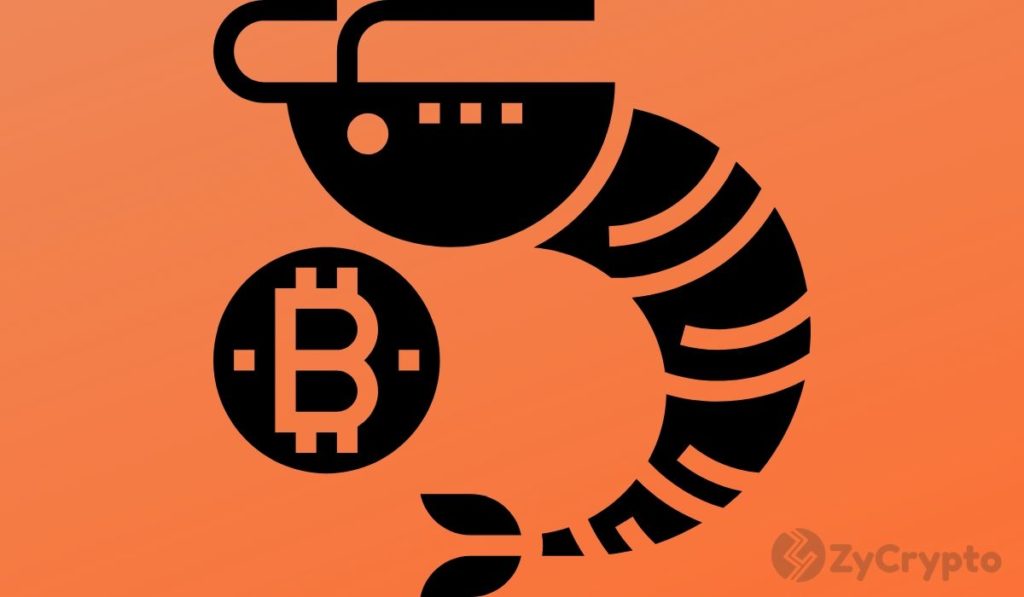2021-9-22 13:38 |
Welcome back, fellow student. Let’s dive back into Saifedean Ammous’ “The Bitcoin Standard” to discover the secrets of economic theory. In today’s lesson, we’ll study the “two main government-approved mainstream schools of economic thought: Keynesians and Monetarists.” Then, we’ll contrast them with the Austrian theory of money. Get the facts of the matter in a convenient bullet-pointed tip format.
Also in this chapter, Saifedean Ammous finally talks about Bitcoin. We’re seven chapters in and, leaving out prologue and introduction, this is the first time the author mentions the book’s subject directly. Bitcoin is always present, though, implicit in the narrative.
In any case, let’s get into it… but first…
About The Coolest Book Club On EarthThe Bitcoinist Book Club has two different use cases:
1.- For the superstar-executive-investor on the run, we’ll summarize the must-read books for cryptocurrency enthusiasts. One by one. Chapter by chapter. We read them so you don’t have to, and give you just the meaty bits.
2.- For the meditative bookworm who’s here for the research, we’ll provide liner notes to accompany your reading. After our book club finishes with the book, you can always come back to refresh the concepts and find crucial quotes.
Everybody wins.
So far, we’ve covered:
Prologue and Chapter 1 Primitive Moneys (Chapter 2) Why Gold? (Chapter 3, Part 1) History (Chapter 3, Part 2) Gold Standard (Chapter 4, Part 1) Government Money (Chapter 4, Part 2) Money and Hyperinflation (Chapter 4, Part 3) Time Preference (Chapter 5, Part 1) Capital Accumulation (Chapter 5, Part 2) Price (Chapter 6, Part 1) Unsound Money (Chapter 6, Part 2) And now, The Bitcoin Standard: “Chapter 7: Sound Money and Individual Freedom”The central thesis of this part of the seventh chapter is that without inflatable money, governments couldn’t sustain endless wars. Because wars would end whenever one of the warring governments runs out of money. In other words. “government budgets had to obey the regular rules of financial responsibility which apply to every healthy normal entity.” A little accountability will do the governments well.
The question is, should the government manage the money supply? The author answers:
“It is an unquestioned starting assumption of all mainstream economic schools of thought and political parties. There isn’t a shred of real-world evidence to support this contention, and every attempt to manage the money supply has ended with economic disaster.”
BTC price chart on Bitbay | Source: BTC/USD on TradingView.comAnd here it comes, Saifedean Ammous’ first mention of Bitcoin is one for the books:
“But whatever historical quibbles the proponents of the state theory of money may have with these facts, their theory has been obliterated before our very eyes over the last decade by the continued success and growth of Bitcoin, which has achieved monetary status and gained value exceeding that of most state-backed currencies, purely due to its reliable salability in spite of no authority mandating its use as money.”
Of course, that ending was rendered outdated by El Salvador’s decision to adopt Bitcoin as legal tender, but that’s beside the point. Among other things, Bitcoin exists as proof that the population eventually chooses the better money.
The Bitcoin Standard On The Schools Of Economic Thought:It’s time to study the Keynesians and the Monetarists. As Saifedean Ammous puts it:
“It’s important to understand the different rationales for the two schools of thought in order to understand how they can both arrive at the same conclusion and be equally wrong.”
Keynesians’ Main Ideas “The most important metric in determining the state of the economy is the level of aggregate spending across society.” According to the author, this assumption is “completely unfounded and unwarranted.” “Whenever there is a recession, or a rise in the unemployment level, the cause is a drop in the aggregate level of spending.” Keynes never explained, “why it is that spending levels might suddenly drop.” Or why there’s “a recession, or a rise in the unemployment level.“ And “the solution is for the government to stimulate spending, which will in turn increase production and reduce unemployment.” To artificially stimulate spending, that it. “Keynes absolutely detested saving.” It means that people are not spending, it’s as simple as that. “It was government’s role to impose high time preference on society by spending more or printing money.” They’re devaluing the money in your pocket, but it’s for your own good. “There may be consequences in the long run, but there was no point worrying about long-term consequences.” Monetarists’ Main Ideas The Monetarist school’s “intellectual father is Milton Friedman.” Their reason to be is to “provide a weak, watered-down strawman version of a free market argument to create the illusion of a climate of intellectual debate.” Geez, Saifedean! Take your kid gloves off and tell us what you really mean. There are much fewer Monetarists than Keynesians, however, “they are given far too much space to express their ideas as if there are two equal sides.” “Monetarists prefer tax cuts to stimulate the economy, because they argue that the free market will better allocate resources than government spending.” They view “drops in the price level,” and “collapses in the money supply” as “the root of all economic problems.” The Austrian’s School Main Ideas “The Austrian school is focused on establishing an understanding of phenomena in a causal manner and logically deducing implications from demonstrably true axioms.” They claim that ”money emerges in a market as the most marketable commodity and most salable asset.” The public picks “the one asset whose holders can sell with the most ease, in favorable conditions.” There can only be one. “Network effects mean that eventually only one, or a few, assets can emerge as media of exchange.” “If the money supply is fixed, then economic growth will cause prices of real goods and services to drop.” “Such a world would indeed discourage immediate consumption as the Keynesians fear, but encourage saving and investment.”That’s it for today’s “The Bitcoin Standard” lesson. Tune in next time for more.
Featured Image: Bitcoinist Book Club logo | Charts by TradingView origin »Bitcoin price in Telegram @btc_price_every_hour
Tattoocoin (Standard Edition) (TSE) íà Currencies.ru
|
|















